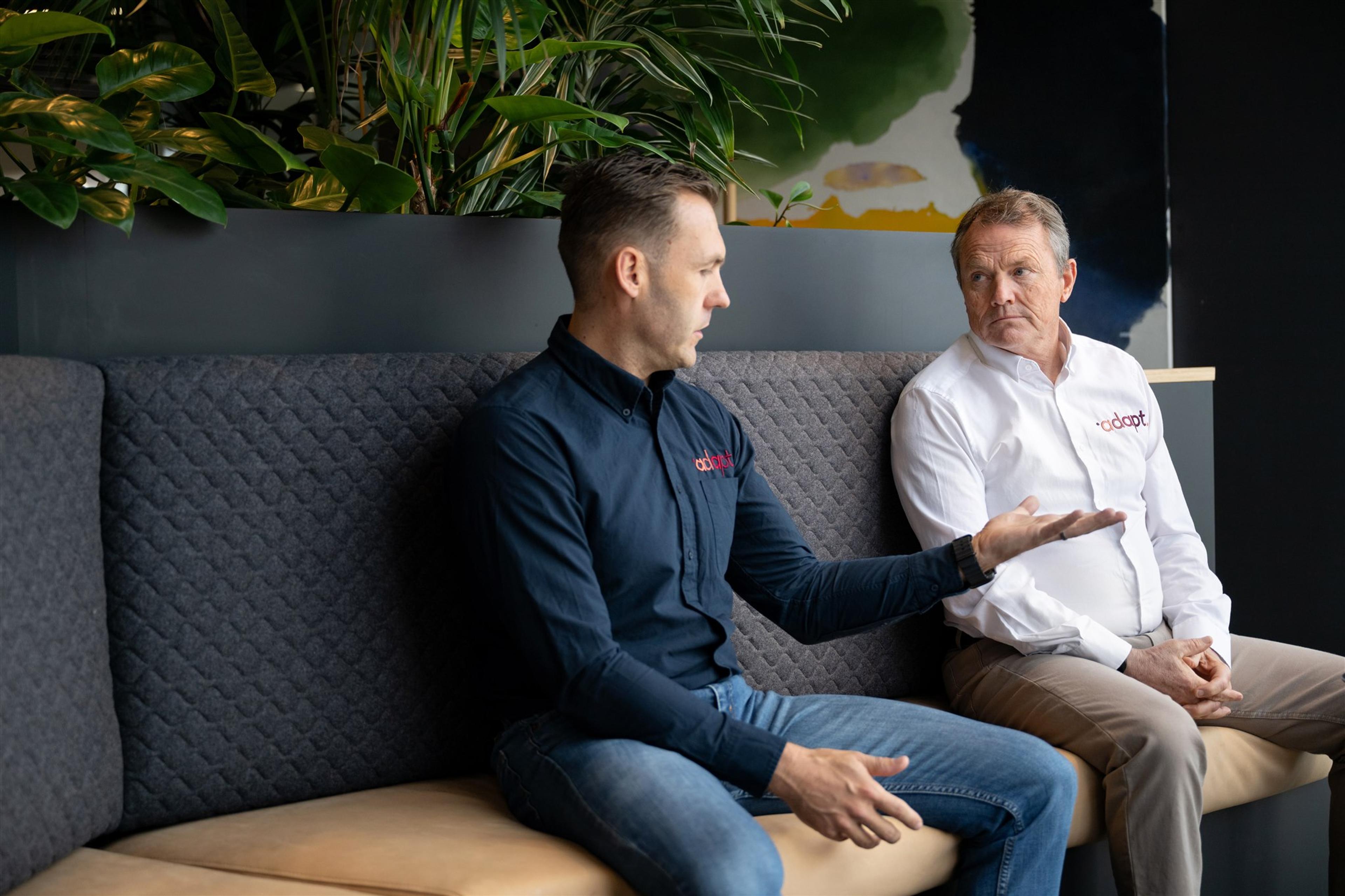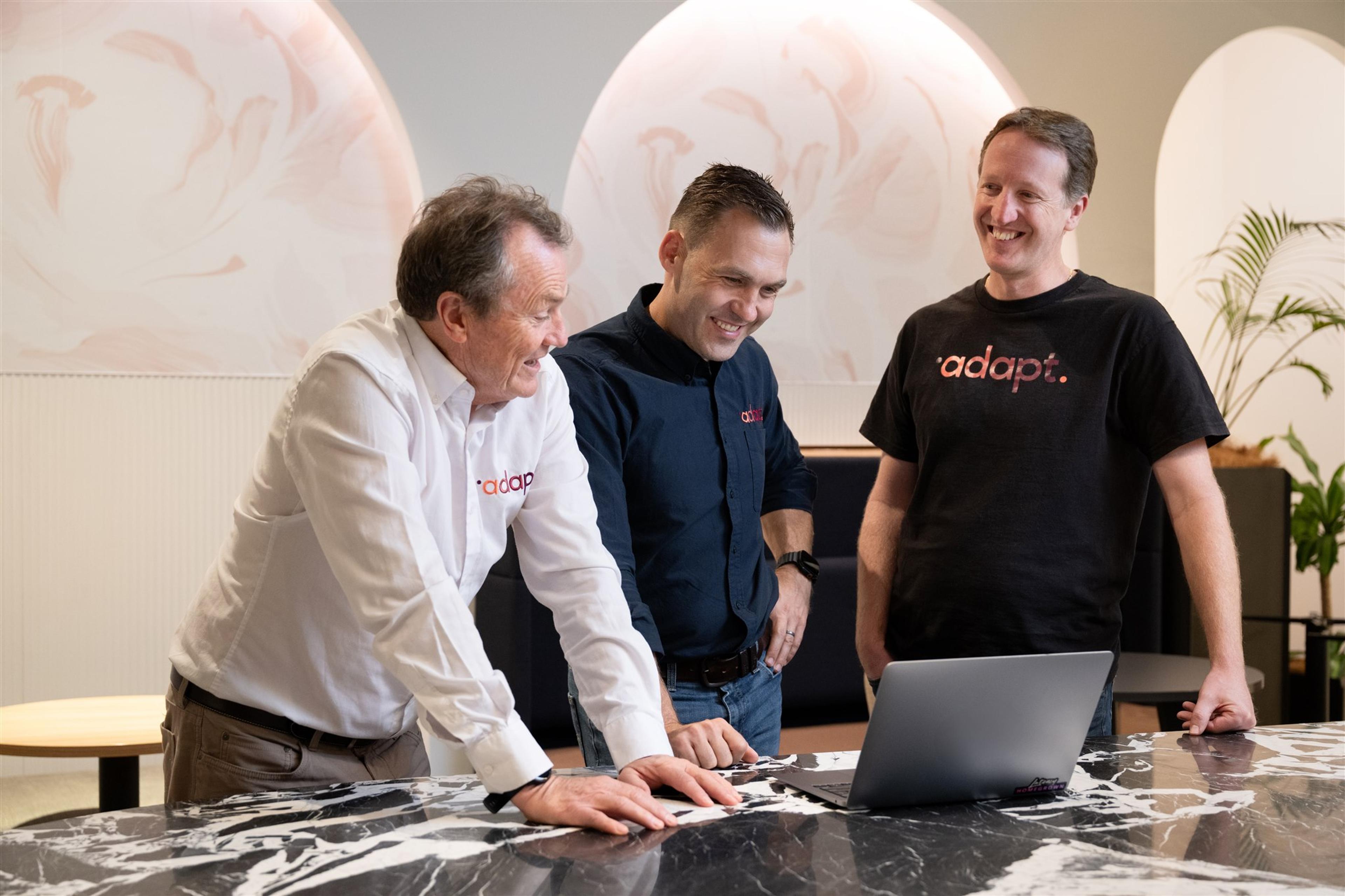Combining Coaching and Mentoring

Coaching and mentoring are two powerful tools that can shape the trajectory of a business. Coaching sharpens skills, focuses on measurable goals, and provides actionable steps to tackle immediate challenges. Mentoring, on the other hand, takes a broader, long-term view, offering wisdom and guidance drawn from experience to support personal and professional growth.
When combined, these approaches create a dynamic support system that empowers business owners, business leadership, and employees to address current obstacles while building a strong foundation for future success. Integrating coaching’s structured focus with mentoring’s relationship-driven insight allows businesses and entrepreneurs to unlock their full potential and achieve meaningful, lasting progress.
An Overview of Coaching and Mentoring in Business
Coaching and mentoring are two distinct yet complementary approaches to professional growth. While they serve different purposes, their impact on personal and business success is undeniable.
Coaching focuses on specific skills and achieving measurable goals. It involves setting clear objectives and working through structured, actionable steps to meet them. Whether it’s refining leadership skills or improving team dynamics, coaching is centred on achieving results.
Mentoring emphasises long-term personal and professional growth. A mentor draws from their own experiences to offer guidance and insight, helping mentees navigate challenges and make informed decisions. The relationship is ongoing and often less formal, prioritising development over immediate outcomes.
Both coaching and mentoring are essential for growth, especially to stay ahead in our challenging modern business environment. They help individuals and organisations overcome hurdles, seize opportunities, and achieve success. When combined, these approaches create a well-rounded support system.
Coaching brings focus and structure, while mentoring offers wisdom and perspective, ensuring that development is both goal-driven and deeply personal. Together, they provide the tools and guidance needed to reach new heights.
Understanding the Difference Between Business Coaching and Mentoring
Coaching and mentoring serve distinct purposes, but they can complement each other when applied effectively. Understanding their differences is the first step to harnessing their combined power.
Business coaching: Task-focused and goal-oriented
- Coaches work with individuals or teams to achieve specific, measurable goals.
- The process is structured, with clear timelines and action plans.
- It often involves skill-building, problem-solving, and performance improvement.
For example, a coach might help a business leader develop their communication skills or guide a team through strategic planning.
Mentoring: Relationship-based and long-term
- Mentors focus on providing wisdom and guidance drawn from personal experience.
- The relationship is built on trust and often develops organically over time.
- Mentoring supports personal and professional growth, helping mentees shape their career or business approach.
A mentor might share lessons learned from their own entrepreneurial journey, helping a mentee navigate similar challenges.
The complementary nature of coaching and mentoring
While coaching delivers structure and targets short-term achievements, mentoring provides ongoing support and fosters adaptability. Combining the two offers the best of both worlds:
- Coaching drives measurable progress and skill development.
- Mentoring nurtures creativity, resilience, and broader personal growth.
Together, they create a balanced approach that equips individuals to tackle immediate goals while building a strong foundation for future success.
Benefits of Combining Coaching and Mentoring
Integrating coaching and mentoring creates a balanced and comprehensive approach to growth. Together, they address immediate needs while building a foundation for long-term success.
A holistic approach to growth
Combining coaching and mentoring allows individuals and businesses to tackle both specific challenges and broader aspirations. Coaching helps achieve measurable outcomes, while mentoring fosters personal development and a deeper understanding of one’s goals. Together, they create a well-rounded path to success.
Structured goals meet organic development
- Coaching focuses on clear, actionable targets, ensuring consistent progress.
- Mentoring encourages creativity and adaptability by sharing insights and experiences.
By combining these approaches, individuals can stay focused on their objectives while remaining open to new opportunities and perspectives.
Improved leadership, decision-making and collaboration
A dual approach equips leaders with technical skills and emotional intelligence. This combination enhances decision-making, fosters stronger team dynamics, and builds confidence in navigating complex challenges.
For example:
- A coach might help refine a leader’s conflict-resolution skills.
- A mentor could offer guidance on building trust within a team.
Leveraging the strengths of both coaching and mentoring helps individuals unlock their potential, strengthen their leadership abilities, and drive their businesses forward.
How to Choose the Right Business Coach or Mentor
Finding the right coach or mentor can make a significant difference to your personal and business growth. The right fit depends on your specific needs, goals, and values. Here’s how to approach the decision:
Assess experience and expertise
A good coach or mentor should resonate with your personal and business objectives. Their approach should complement your vision and values. At adapt, our focus is to prioritise understanding your business challenges and goals to provide support that feels personalised and practical.
Utilise trusted networks and platforms
Use professional networks, LinkedIn, and referrals to explore credible options. Adapt offers a team of experienced business coaches who work collaboratively with you and your leadership team, acting as trusted advisors throughout your journey.
What adapt offers
A smooth transition is vital for attracting buyers and ensuring the continued Adapt combines coaching and mentoring to help you achieve measurable results while fostering long-term growth. Our coaches work alongside you to:
- Diagnose challenges and identify opportunities.
- Design actionable strategies tailored to your goals.
- Deliver sustainable solutions that support your business resilience.
We believe in partnerships, not prescriptions. By drawing out the expertise already present within your team, we help you strengthen your business and leadership capacity.
Choosing the right coach or mentor isn’t just about qualifications—it’s about finding someone who truly understands your business and can guide you effectively. With adapt, you’ll have a partner who listens, challenges, and supports you every step of the way.

Practical Tips for Integrating Coaching and Mentoring in Your Business
Successfully combining coaching and mentoring in your business requires clarity, organisation, and commitment. Here’s how to integrate both approaches effectively to maximise their impact.
Start with a clear vision
- Define what you want to achieve with coaching and mentoring. Are you looking to improve leadership skills, address operational challenges, or prepare for long-term growth?
- Set specific, measurable outcomes for both relationships. For instance, coaching goals might focus on short-term performance improvements, while mentoring could aim at fostering resilience and strategic thinking.
Our strategy at adapt is to begin every partnership by identifying your unique goals to ensure that coaching and mentoring align with your vision.
Define roles and boundaries
- Clearly outline what your coach and mentor will contribute. A coach may focus on structured development, such as skill-building and problem-solving, while a mentor offers advice and perspective drawn from their experience.
- Avoid overlaps by discussing roles and responsibilities upfront. This clarity prevents confusion and ensures that both approaches complement each other effectively.
Create a supportive framework
Schedule regular check-ins with your coach and mentor. Consistent interactions help maintain momentum and provide opportunities to address emerging challenges.
- Use tools to track progress. For example:
- Performance trackers: Measure progress on specific coaching goals.
- Mentoring journals: Reflect on key takeaways from mentoring sessions and apply lessons to your business.
We guide you in setting up these systems, ensuring a structured yet flexible approach to development.
Foster open communication
- Encourage honest conversations about expectations, progress, and feedback. Transparency is key to building trust and ensuring that both relationships remain productive.
- Don’t shy away from discussing challenges. Coaches and mentors are there to support you through obstacles, but they need to understand your concerns to provide effective guidance.
Integrate coaching and mentoring into your culture
- Promote a growth mindset within your organisation by encouraging team members to seek their own coaching and mentoring opportunities.
- Share success stories to highlight the value of these approaches. For instance, showcase how coaching improved team efficiency or how mentoring shaped leadership growth.
Leverage adapt's expertise
We don’t just provide coaching and mentoring services—we help you weave these practices into your business culture. Our approach includes:
- Helping you define clear objectives and align them with your business goals.
- Supporting you in creating structures for tracking progress and maintaining accountability.
- Acting as facilitators to empower your leadership team with the skills and insights needed for sustainable growth.
Integrating coaching and mentoring is not a one-size-fits-all process. It requires intentional planning, clear communication, and a commitment to growth. With the right framework, these approaches can transform your business, equipping you to tackle immediate challenges and achieve lasting success.
Common Challenges and How to Overcome Them
Integrating coaching and mentoring into your business can bring incredible benefits, but it’s not without challenges. Anticipating these hurdles and addressing them effectively can ensure a smoother, more productive experience. Here are some common challenges and practical strategies to overcome them.
Challenge 1: Misaligned Expectations
Coaches and mentors have different roles, and confusion about their responsibilities can lead to unmet expectations.
How to Overcome It:
- Define roles and goals early: Clearly communicate what you hope to achieve through coaching and mentoring.
- Set written agreements: Outline each party’s responsibilities, timelines, and deliverables in a document everyone agrees on.
- Schedule regular alignment discussions: Use check-ins to reassess goals and clarify any misunderstandings as they arise.
At adapt, we work with you to create tailored strategies that ensure alignment between your needs and your support system.
Challenge 2: Time Management
Balancing coaching and mentoring sessions with daily business demands can be difficult, especially for busy leaders and teams.
How to Overcome It:
- Schedule sessions in advance: Block out regular time slots for coaching and mentoring in your calendar, treating them as non-negotiable commitments.
- Set clear agendas for each session: Keep sessions focused and efficient by discussing key topics and action points.
- Leverage technology: Use video calls, shared documents, and performance tracking tools to make sessions more flexible and accessible.
We will help you streamline the process, ensuring coaching and mentoring fit seamlessly into your schedule.
Challenge 3: Resistance to feedback
Some team members may struggle to accept feedback or adapt to new ideas presented during coaching or mentoring.
How to Overcome It:
- Foster a growth mindset: Encourage an organisational culture that views feedback as an opportunity for improvement rather than criticism.
- Start small: Introduce gradual changes that build trust and demonstrate the value of feedback.
- Provide support: Pair coaching and mentoring with resources like workshops or team-building exercises to help individuals build resilience and openness to change.
Our coaches at adapt are skilled at guiding teams through this process, creating an environment where feedback drives growth.
Challenge 4: Lack of measurable progress
Without clear benchmarks, it can be difficult to assess whether coaching and mentoring are delivering results.
How to Overcome It:
- Set specific, measurable goals: For coaching, focus on short-term achievements like skill-building or performance improvements. For mentoring, establish broader developmental milestones.
- Use performance trackers and mentoring journals: Monitor progress regularly and adjust strategies as needed.
- Celebrate successes: Acknowledge achievements, no matter how small, to maintain motivation and momentum.
Adapt supports you in designing tracking tools and frameworks to ensure you stay on course.
Challenge 4: Maintaining consistency
Busy schedules and competing priorities can lead to inconsistent engagement in coaching and mentoring.
How to Overcome It:
- Create a routine: Stick to a consistent schedule for sessions and follow-ups.
- Prioritise accountability: Use reminders, shared calendars, and progress updates to keep everyone on track.
- Adapt to changing needs: Recognise when adjustments are necessary and work with your coach or mentor to recalibrate goals and timelines.
adapt helps ensure that consistency remains a priority, even as your business evolves.
Addressing these challenges proactively ensures that you maximise the benefits of coaching and mentoring. We partner with you to overcome obstacles and create a support system that drives meaningful, lasting change for you and your business.
Case Studies: Success Stories of Combined Coaching and Mentoring
Integrating coaching and mentoring has proven effective for many businesses. Here are some real-world examples demonstrating the benefits of this combined approach:
1. Polarsis Teams: From concept to company
David Sharkey returned to Ireland after a decade abroad to launch Polaris Teams, focusing on internal communications and leadership. Through the government-backed Back for Business program, which offers both coaching and mentoring, he successfully transitioned from teaching to entrepreneurship.
This support system helped him navigate the challenges of starting a new business, providing both strategic guidance and personal development. (The Times)
2. Swift Heating & Gas Services Ltd: Scaling new heights
Lewis Ward, a boiler engineer from Cleethorpes, transformed his modest heating business into a multi-million-pound company after attending a mentoring course by The Apprentice winner Joseph Valente. Initially working alone with a £150,000 turnover, his company now has 16 employees and installs 600 boilers annually, surpassing a million in turnover.
This success story highlights how combined coaching and mentoring can provide the tools and confidence needed to scale operations effectively. (The Sun)
3. NHS Graduate Development: Enhancing leadership skills
The National Health Service (NHS), the publicly funded healthcare system in the United Kingdom, offers various graduate development programs to prepare future leaders in healthcare.
Mike Porter, who works with graduates entering the NHS, is engaged in a structured coaching and mentoring program. The program focused on applying theoretical knowledge to practical situations, exploring the differences between coaching and mentoring, and improving communication skills.
This approach empowered graduates to grow in their roles and secure new positions, demonstrating the program's effectiveness in professional development. (CAW Business School)
4. Schneider Electric: Boosting internal mobility
Schneider Electric identified that nearly 50% of exiting employees cited subpar growth opportunities as their primary reason for leaving. In response, the company launched a talent marketplace to transform internal mobility and empower employees to take charge of their professional development.
Mentoring became a core component, enabling employees to connect with mentors across functions and regions, fostering a culture of continuous learning and retention. (Engagedly)
5. WWF Global Mentoring Programme: Building skills and strategic thinking
Since 2014, the WWF global mentoring programme has seen significant participation from staff across the globe, including Africa, Asia, and South/Middle America. The programme focuses on building technical knowledge relevant to WWF's work while allowing personal development. Mentors and mentees are matched across thematic boundaries, functions, and regions, promoting shared learning and development. (Coach Mentoring Ltd)
These case studies illustrate how combining coaching and mentoring can drive business growth, enhance leadership skills, and improve employee satisfaction. Integrating structured guidance with personal development assists organisations to create a supportive environment that fosters success.
Conclusion: Building Your Perfect Support System
Coaching and mentoring are invaluable tools for achieving personal and business growth. The integration of these approaches allows you to build a support system that addresses immediate challenges while fostering long-term development.
Key takeaways:
- Coaching provides structure, measurable goals, and actionable steps to drive progress.
- Mentoring offers wisdom, perspective, and relationship-driven guidance for ongoing growth.
- Together, they create a balanced, holistic approach to success.
Reflect on Your Business Goals: Take a moment to consider your current challenges and aspirations. What areas of your business need immediate improvement? Where do you want to be in five years? By reflecting on these questions, you can identify the type of support that aligns with your unique needs.
Explore Your Options with Adapt: At Adapt, we specialise in combining coaching and mentoring to help businesses achieve their goals. Our tailored approach ensures that you receive practical guidance for today’s challenges and strategic support for future growth.
Your Next Steps: If you’re ready to accelerate your growth, explore professional coaching and mentoring programmes that align with your vision. Start by:
- Identifying areas where you need support.
- Reaching out to trusted professionals or organisations like Adapt.
- Committing to a process that prioritises clarity, accountability, and long-term results.
A well-rounded support system can transform your business, helping you unlock your potential and achieve sustainable success. With the right combination of coaching and mentoring, you’ll be equipped to navigate challenges, seize opportunities, and build a bright future.




